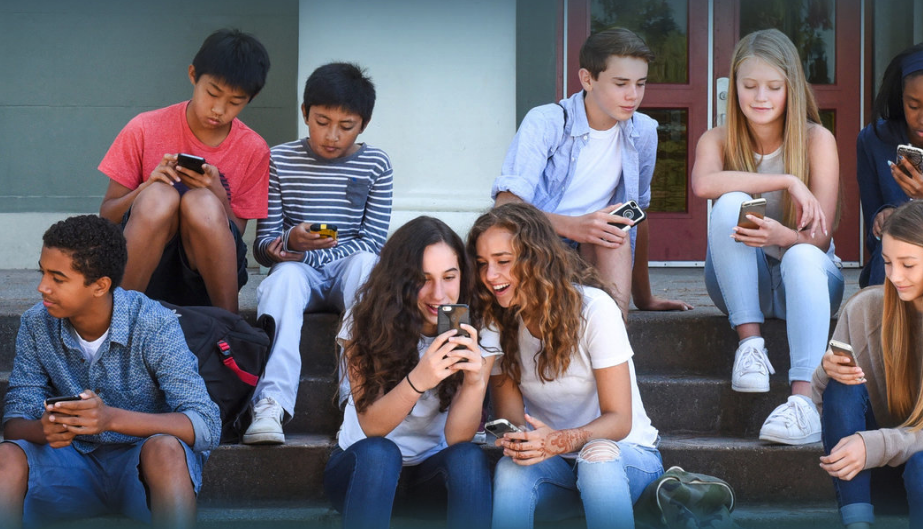Last week, a student from San Jose State University came to Hillbrook to observe a classroom. Taking a child development course, he needed to observe technology in a class. Our first stop was one of our 8th grade science classes. The students were designing rockets, working on modifying two liter bottles by adding wings, parachutes, and even a second stage booster. To the unpracticed eye, this might not seem like a “technology” assignment. I said to our visitor, “You might not see technology. You’ll see engagement, collaboration, problem solving, but you might not see an iPad being used.”
At Hillbrook, we believe technology is a resource. iPads are one of the many classroom tools that Hillbrook students use that we include under the rich umbrella of education-driven technology. iPads can also be a powerful storytelling device. With one in hand, a student can write a script, record footage, edit the movie, and publish it for the world to see. In this way, the iPad provides an all-in-one way in which students can reach beyond themselves to make a difference in the world.
And that brings us to the movie, “Screenagers,” which our community screened last night at the Los Gatos Theater. While this thought-provoking film encouraged us to remain mindful of family technology usage, it is not necessarily a film that shows the unique and intentional way in which we use and embrace technology at Hillbrook.
The documentary highlights family members grappling with common dynamics of the digital age – a daughter purchasing her first smartphone, a son addicted to playing video games. We also come face-to-face with the allure of using social media to gauge self-worth, especially among adolescents. There is even a piece that brings cyberbullying to light when a girl experiences the major repercussions of sharing a personal photo via text message.
The film highlights the very real, everyday technology challenges that families juggle, including screen time, personal phones, and texting at the dinner table. And, as the film shows, technology use is an incredibly complex issue. To say devices are “all bad” is to oversimplify the issue. To ban our children from being connected to a world of devices does not guarantee resolution.
At our school, the key to successful integration of technology and devices has been active dialogue with our students regarding digital citizenship and proper use of these tools in their educational and everyday lives. In fact, despite mentioning schools several times, the film is not necessarily about school usage of technology at all. However, as a school that partners with families on their children’s educational and developmental journey, we are meeting this 21st-century parenting challenge of monitoring recreational device usage, together.
The Hillbrook School Parent Council has done an exemplary job sharing and inviting this conversation and discussion with our parent community. Led by our HSPC President and our volunteer Parent Education Coordinator, this morning’s discussion of the film was a dynamic and constructive gathering. Great conversation flowed and helpful resources were shared as parents chose an area of interest and delved into topics including managing family screen time, mindfulness, and designing a family contract for device usage.
While we recognize the complexity of this problem at home, in the school context, technology is used in ways that engage students and offer them tools to enhance the educational experience. For example, students in 3rd grade created an underworld in Minecraft during their Greek unit. It’s difficult to imagine what an underworld could look like, but these students collaboratively constructed an underground cavern, that had the result of enhancing their understanding of Greek mythology.
5th and 6th grade music classes are using a new platform, Sesame, to capture performances and facilitate introspection. She, along with students, can record video, take a photo, or post a brief reflection. With a simple tap on a name, you can view student work, such as a recorder performance or an improvised composition using the Orff Xylophone app. Using these platforms encourages students to collaborate, problem solve, and through this holistic process, improve on their skills with the recorder and xylophone.
In addition to finding ways to use technology that enhance the learning experience, we also spend time working with our students to teach them how to be digital leaders. Through our digital leadership program, our students use technology to improve the lives, well-being, and circumstances of others. By creating digital citizenship videos geared toward younger students to collaborating with peers, our students are inspiring further conversations about how might we use these devices to be leaders at our school.
As an Apple Distinguished School, we are recognized leaders in innovation not just for having “cool gadgets” in our classroom, but for deeply and intentionally integrating the role of technology (in all senses of the term) within our school. Through our work, we are enhancing, personalizing, and expanding the educational experience of each of our students, and helping them reach beyond themselves to make a difference in the world.
